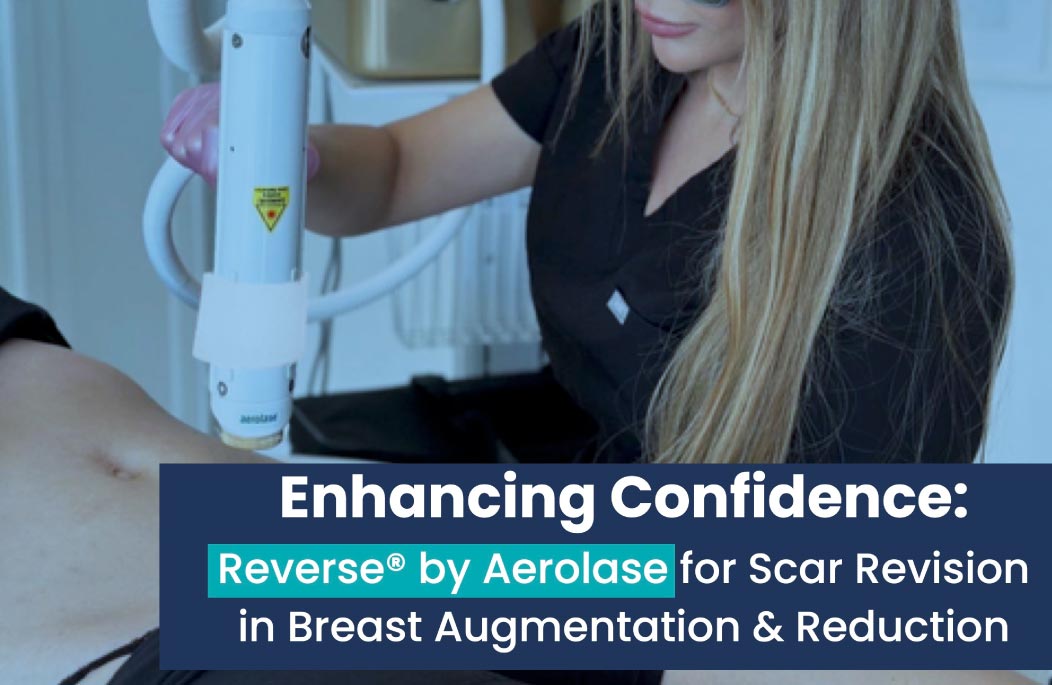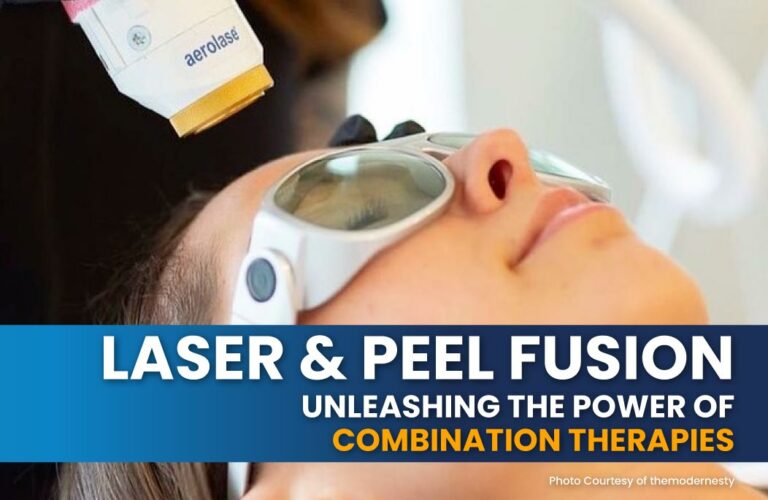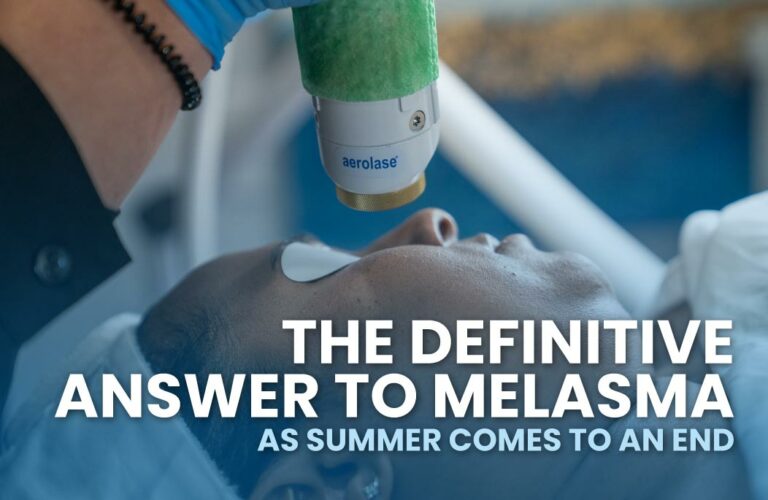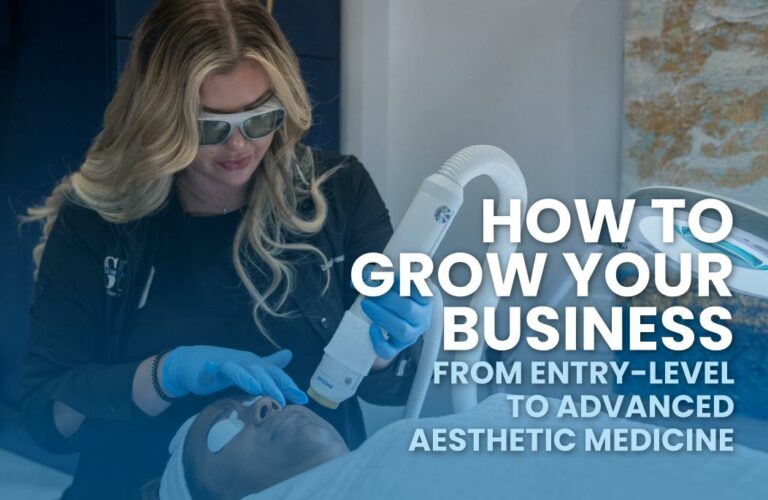Scar revision, particularly for breast augmentation & reduction scars, is a pivotal aspect of postoperative care that can significantly affect patient satisfaction. The quest for an effective treatment to enhance the aesthetic outcome without compromising safety has led to the development of advanced laser technologies. One such innovation, Reverse by Aerolase, promises a comprehensive solution for the improvement and elimination of scar appearances across all skin types.
The Reverse by Aerolase protocol harnesses the power of two state-of-the-art lasers: the Neo Elite and the Era Elite. The Neo Elite is a 650-microsecond Nd: YAG laser specifically designed to remove pigment from scars and stimulate collagen production, leading to a smoother, even skin texture. The Era Elite, a 300-microsecond Er: YAG laser, effectively removes scar tissue while fostering the growth of healthy skin. Individually, each device yields remarkable outcomes, but their combined use significantly enhances the appearance of scar tissue, redness, texture, and underlying pigment.
The introduction of laser technology has revolutionized scar management in breast reduction surgery. Where traditional methods like silicone-based products and mechanical massage were once the standard, lasers like those from Aerolase offer a modern, effective alternative. With patient-reported outcomes backing the effectiveness and safety of these lasers, it is clear that Reverse by Aerolase protocol represents a significant step forward in minimizing postoperative scarring and maximizing patient satisfaction.
A clinical study published in the “Dermatology Journal of Cosmetic and Laser Therapy” provides compelling evidence of the efficacy of laser treatment for breast reduction scars. The study included 16 patients who underwent three treatment sessions with the Neo Elite by Aerolase laser. The results were promising, with significant improvements in patient satisfaction and quality of life related to breast surgery. Patients reported a reduction in scar visibility and an enhancement in the overall scar appearance, corroborated by clinical assessments from plastic surgeons.
Contrary to thought, the study found that the number of days from surgery, age, and body mass index (BMI) were not independent predictors of the post-treatment breast-Q scores. This suggests that the Aerolase laser treatment is a versatile option that can benefit a wide demographic of patients irrespective of these factors.
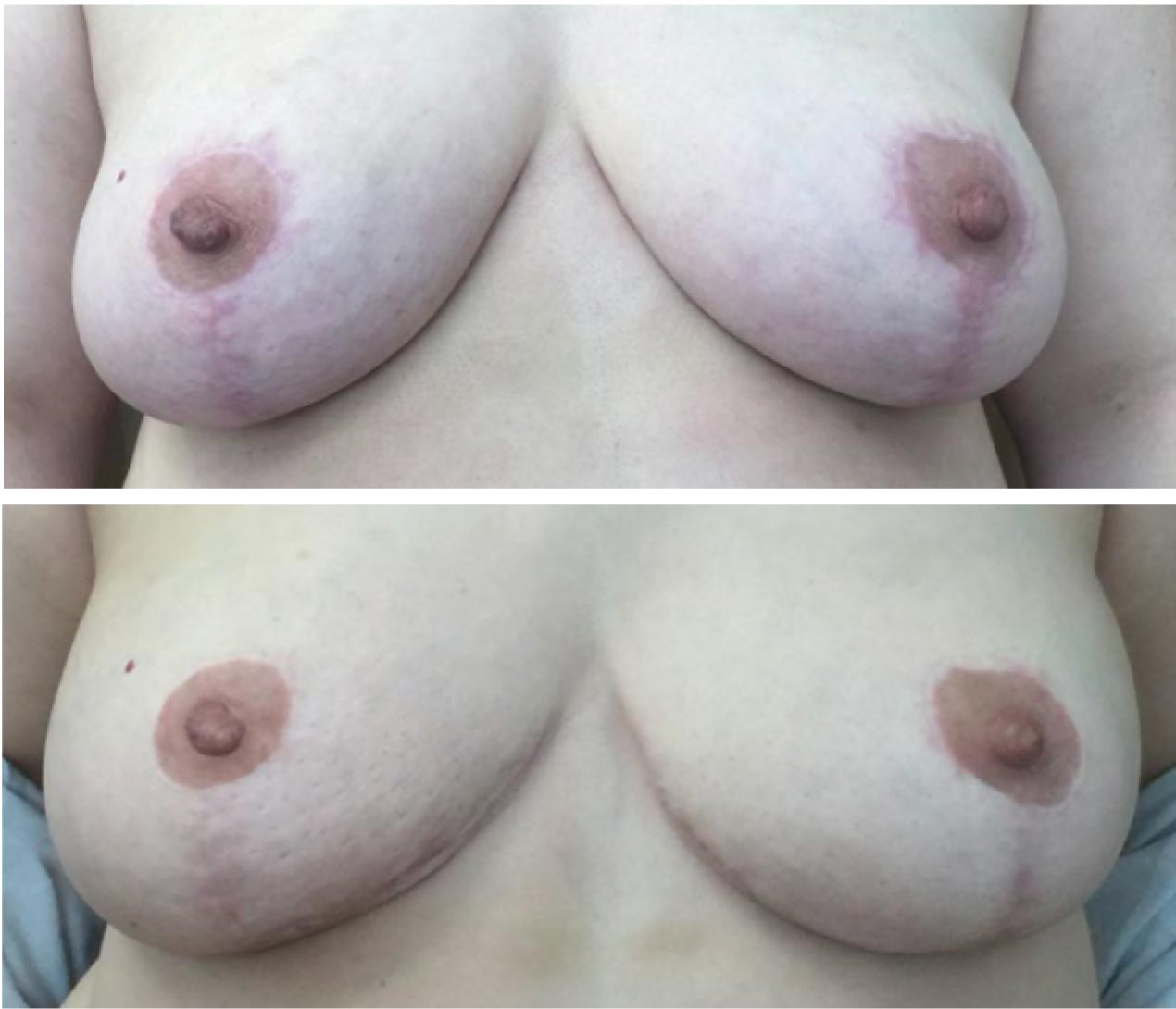
Photos Courtesy of Stanford University
In the study titled “Clinical Efficacy and Patient Satisfaction in Laser Scar Revision using a 300-Microsecond Pulsed Er:YAG 2940nm Laser” by Dr. Khalil A. Khatri and Dr. Viktor Moiseev, aimed to assess the effectiveness of a 300-Microsecond Pulsed Er:YAG 2940nm Laser in scar revision. This laser, operating at a fluence of 5 J/cm², demonstrated the ability to ablate scar tissue without causing significant residual thermal damage. The study was based on the premise that the Er:YAG laser is most efficient when applied to hydrated tissue, which corresponds to the early stages of scar formation, typically occurring around 10-14 days after injury. The research involved 32 male and female subjects with various types of scars, divided into two groups based on scar age. The findings indicated that the laser treatment was notably more effective in subjects with relatively fresh scars after fewer sessions compared to older scars. Moreover, the treatment was well-tolerated and yielded high patient satisfaction rates, with 30% rating the results as excellent, 50% as good, and 20% as satisfactory. Overall, the study concluded that the 300-Microsecond Pulsed Er:YAG 2940nm Laser is a safe and efficient option for scar revision, particularly for fresher scars, and holds promise in improving patient outcomes.
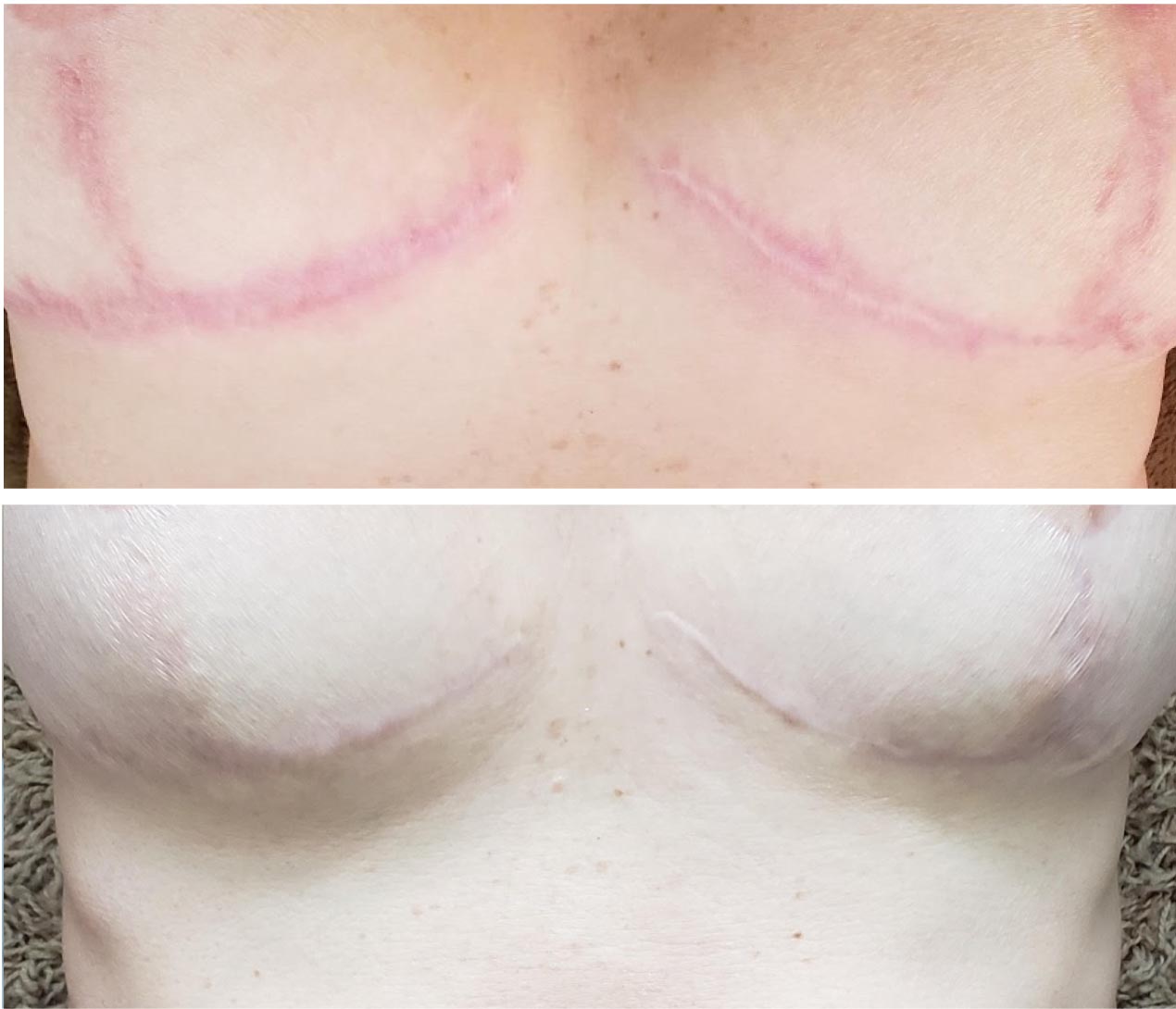
Photos Courtesy of Aerolase
Integrating this study into the broader context of scar management, particularly for breast reduction patients, it becomes clear that the Reverse by Aerolase protocol is not just a procedure; it’s a patient-centric solution. By incorporating advanced laser technology, this protocol not only enhances the aesthetic outcome but also positively impacts the psychological well-being of patients. We can expect to see the role of laser therapy in postoperative care to become increasingly vital in achieving the best possible results for all patients.
Kelsey Lipman, Halley Darrach , Peter Deptula , Dung Nguyen .(2022). Laser Treatment of Breast Reduction Scars – A Patient Reported Outcomes Study. Derma J Cosmetic Laser Therapy, 1(1), 12-16.
Clinical Efficacy & Patient Satisfaction in Laser Scar Revision using a 300-µsec Pulsed Er:YAG 2940nm Laser
Khalil A. Khatri, MD, Viktor Moiseev, MD, Presented at the ASLMS Annual Conference 2016

